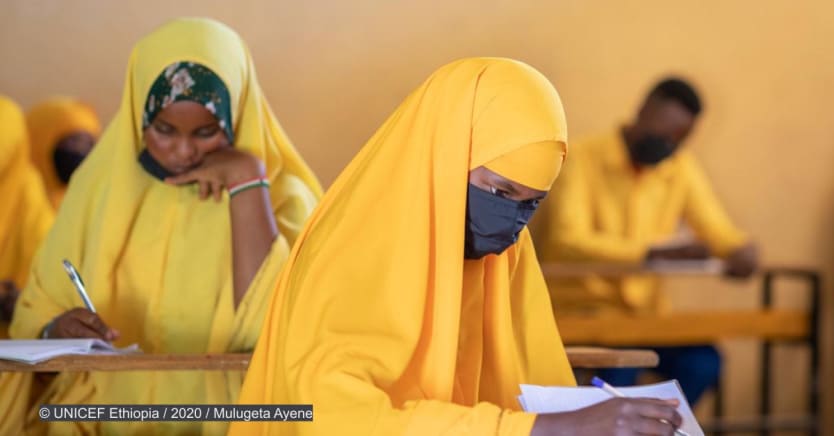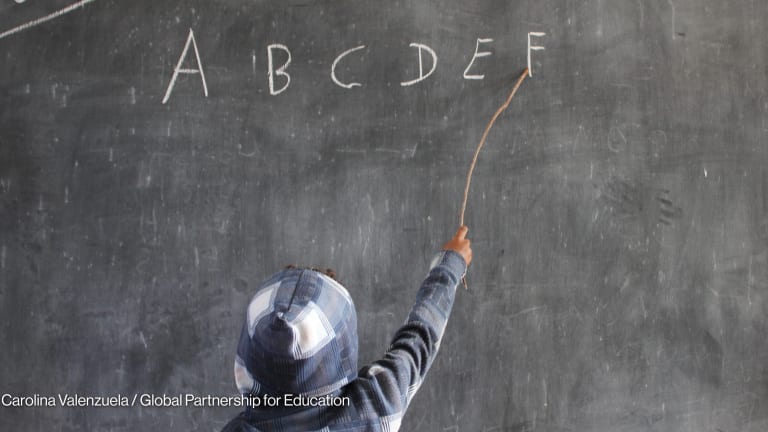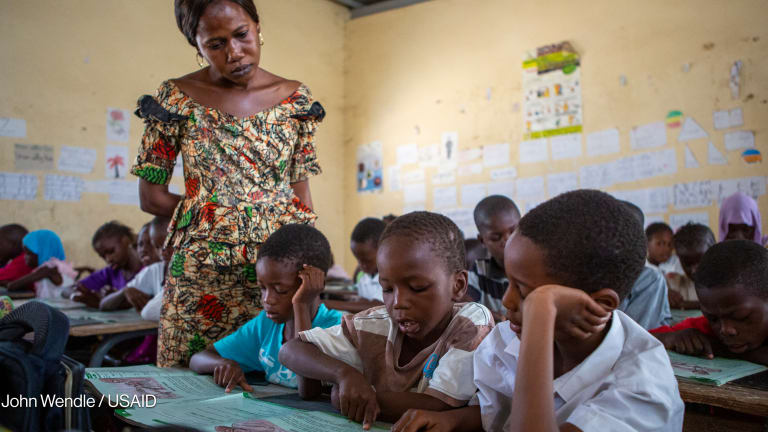
If there is a universal lesson from this pandemic, it is that inclusive and quality education matters. Parents in low- and high-income countries alike experienced what it means for school doors to close, for a child not to see their teacher for months on end, and how problems with education lead to so many other struggles — with nutrition, mental health, employment prospects, and to the risk of children being exploited.
The spring meetings of the World Bank and the International Monetary Fund this week mark the first in a series of major international meetings this year where economic recovery plans from the crippling effects of COVID-19 will be discussed.
Boris Johnson, the U.K. prime minister and chair of the G-7 this year, has indicated that girls’ education is a G-7 priority. Nations are being called on to raise $5 billion for the Global Partnership for Education’s replenishment in July.
The G-20 meeting in October has a working group on education, which aims to overcome the digital divide. The United Arab Emirates’ minister of state for international cooperation has said it is the time to reshape the global conversation around education at its major RewirEd event in December.
On one hand, leaders are at least recognizing, in principle, that education must be at the heart of planning the global recovery. It has become clearer than ever that spurring economic growth requires an up front, heavy investment in education. Only this approach will bring a truly equitable recovery that honors UN Sustainable Development Goal 4 of providing quality, inclusive education to every child by 2030.
However, one vital thing is missing: The numbers just don’t add up. International aid to education peaked at $16 billion in 2019, but is predicted to drop, given how the pandemic has brought new pressures on national budgets and donors’ purses. And at a time when investment in education is crucial to recovery, world leaders are not at the races.
However, if we truly believe in education, we need to create more resources. Innovative finance is the only way to bridge a gap that is four times the existing aid levels, even on a good day.
—Even if lower-income countries maximized domestic resources for education, and if donors maintained and gradually expanded current commitments to existing global education funds, there would still be a minimum average annual shortfall of $75 billion.
There is a real opportunity for 2021 to be a major moment for education. But we won’t solve anything by merely parading worthy sentiments at global meetings. We need bold action from brave leaders, and for donors and governments to at long last fund education properly, demonstrating that SDG 4 is achievable. Our new Education Finance Playbook shows how this can be done.
Firstly, national governments need to do their part through equitable taxation, closing loopholes, and prioritizing education with the recognition that it is simply their best investment in future prosperity and security. Education must be part of national economic stimulus plans.
Secondly, donors need to maintain and, where possible, expand aid. This means funding all of the existing appeals from specialized education funds – namely the $5 billion for GPE’s replenishment and $400 million over two years for Education Cannot Wait.
This also means giving generously to international bodies, such as UNICEF, UNESCO, United Nations Relief and Works Agency for Palestine Refugees in the Near East, and the multilateral development banks that assist with educational programming.
However, if we truly believe in education, we need to create more resources. Innovative finance is the only way to bridge a gap that is four times the existing aid levels, even on a good day. The International Finance Facility for Education, which has financial support already from the U.K. and the Netherlands, is the most advanced and vetted solution to help supercharge recovery efforts in education.
Without going too far into the technical detail, a commitment of $1 billion would unlock upwards of $25 billion in additional finance, leveraging concessional finance from multilateral development banks such as the World Bank. There are also opportunities for major philanthropists to leverage their contributions up to 27 times the initial investment, and for the business community to make domestic philanthropy have a greater impact.
Opinion: How will countries make up for lost learning during the pandemic?
Catch-up and remedial forms of education have been considered recently due to the time and opportunities children lost in the pandemic. But what type will these be, and how much will they cost?
Early concerns about debt sustainability have been thoroughly examined and found not to be a risk. IFFEd backs existing vetted plans and strategies for the education sector. It may not be the right solution for every country, but it can be a lifeline for many of the world’s underserved and vulnerable children.
At its peak, the pandemic disrupted or stalled the education of 1.6 billion children. Around half that number are still experiencing disruption, and tens of millions are at risk of never returning to school. We need to make every financial tool available to countries with the will to invest in their next generation.








